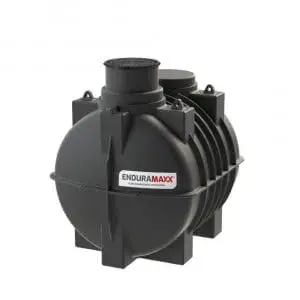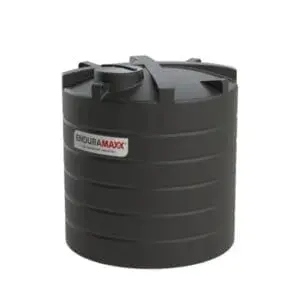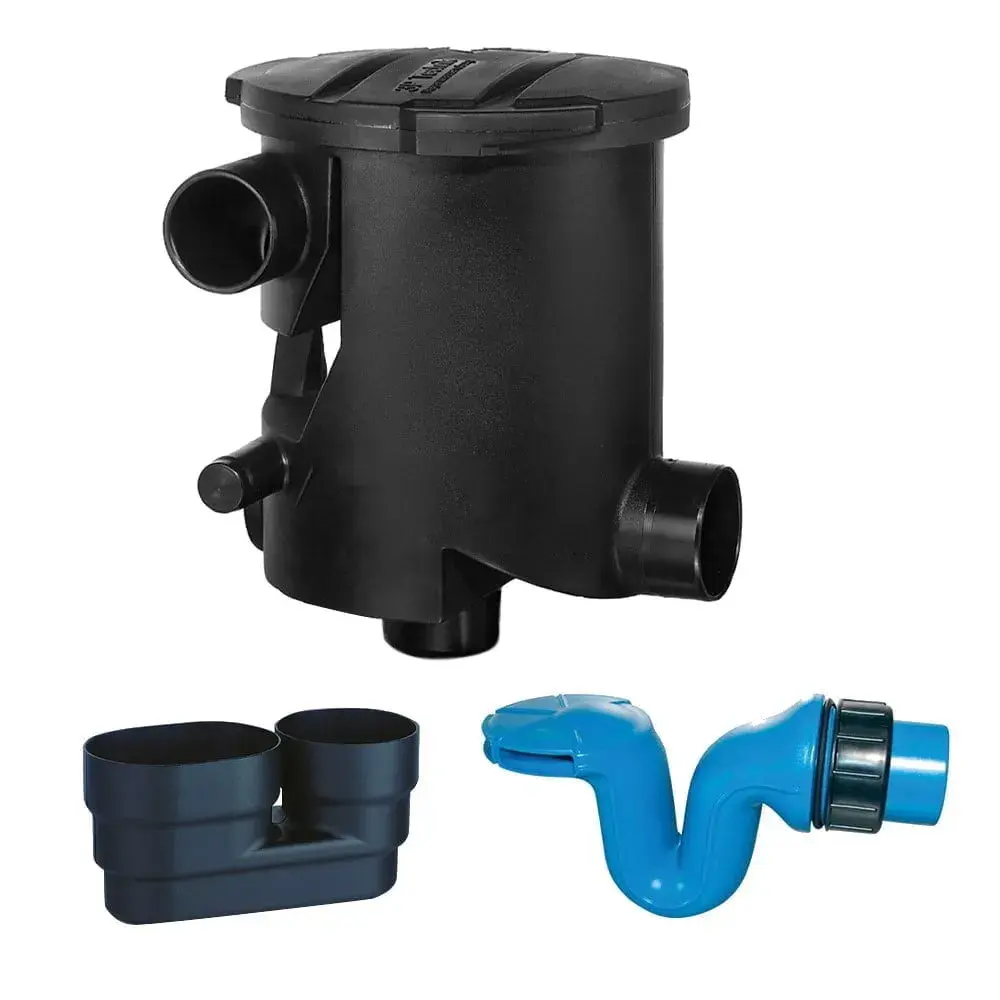A wastewater treatment system is designed to treat wastewater from factories, agriculture and industry. Each system is built to the specifications required for that particular type of wastewater. The chemical oxygen demand (COD) test is often used to monitor water treatment plant efficiency and is a measure of the quality of the water.
Different industries will produce different types of wastewater with different treatment needs. For example, food and drink manufacture produces a lot of fats, oils, and greases with water high in COD content, whereas vegetable washings create wastewater which will have a high level of silt and suspended solids in the wastewater.
The components of a wastewater treatment system will include:
- Storage tanks for the wastewater
- Wastewater equalisation tanks
- Mixing or reaction vessels where the water is treated
- Dewatering and sludge tanks
- Equipment such as filters, filter presses, monitors, pH adjustments and polymer make up units
- Treated water tanks
- Discharge tanks
Wastewater Equalisation Tanks
The equalisation tanks collect factory wastewater- the size will depend upon the output volume. Mixers are used to keep the solids in suspension mounted onto a shallow conical tank for ease of cleaning, or a vertical tank might be used.
When necessary the pH of the water can be adjusted, but the addition of acids or alkaline. These tanks can be fitted with top-mounted mixers to and to speed up the chemical process improve the efficiency of the system together with controllers for the pH levels.
Wastewater Treatment Tanks
In the wastewater treatment tanks, flocculants are introduced to make the solids clump together into flocs which settle at the bottom of the tank and can be removed. Mixers are fitted to aid the chemical reaction within the tank. Conical tanks are ideal for this purpose since the flocs and silts can be easily be drained off from the cone at the bottom.
The sludge is pumped into a sludge tank and decant valves open to take the clear water from the tank onto a filter tank to remove smaller particles that have not settled. Many of these tanks are designed for continuous flow and mixer baffles help the mixing within the tank.
Polymer Make up Units
Adding powder polymers helps to bind together the suspended solids or flocs, creating groups of the material which is easy to filter off. They make the process of flocculation more efficient in industrial usage.
Enduramaxx provides other equipment to help separate the solids from the liquid such as:
You can read more about our Polymer Makeup & Dosing system mixer tanks here
Dewatering and Sludge Tanks
Sludge holding tanks provide storage and blending for the thickened waste activated sludge, primary sludge, imported sludge, and scum before further processing. The size of the tank will depend on the volume of sludge being produce. They are generally fitted with sludge decant flanged or BSP threaded valves to dewater if required.
Clarifier/Clarification Tanks
Clarification tanks are used for the continuous mechanised removal of suspended solids or solid particles from a liquid. These plastic tanks, otherwise known as conical clarification tanks or clarification cone bottom Tanks are available in a range of sizes. Clarifier water treatment is part of the primary water treatment process.
Filter Press
An industrial filter press is a tool used in separation processes, specifically to separate solids and liquids. The filters can be opened so that the solids can be removed easily. The filters can be cleaned and replaced as necessary.
Treated Water Tanks
Once the water has been treated it is stored in the treated water storage tanks before being used or transported. These vary in size from 500 litres to thousands of litres according to need. The size should be adequate to accommodate fluctuations in demand.
Discharge Water Tanks
The dirty water also needs storing and it is in the discharge water tanks that the dirty water is stored before disposal. Generally, pumps empty the tanks in a continuous process.
Enduramaxx Components of a Wastewater Treatment System
We manufacture tanks for every stage of the wastewater treatment programme. Conical cone tanks or flat base vertical tanks are essential components of wastewater treatment system applications From 50-litre dosing tanks to store flocculants or chemicals to 30,000-litre sludge tanks, we are sure we can help with your next project. For more details on these please phone us on 01778 562810.
Posts By Topics
- Blog (303)
- Chemical Storage Tanks (118)
- Chemical Dosing Tanks (114)
- Chemical Tanks (114)
- Water Tanks (58)
- Rainwater Harvesting Tanks (43)
- Vertical Rainwater Tanks (31)
- Vertical Storage Tanks (31)
- Cone Bottom Tanks (19)
- Conical Cone Tanks (18)
- Rainwater Harvesting (17)
- Water Bowsers (15)
- Horizontal Tanks (14)
- Potable Water Tanks (13)
- Farming (9)
- Case Studies (8)
- Industrial Storage Tanks (7)
- Liquid Fertilser Storage Tanks (6)
- WRAS Approved Potable Tanks (6)
- Wine and Beer Production (6)
- Horizontal Transport Tanks (5)
- Microbrewery (5)
- Rainwater (5)
- Category 5 Break Tanks (4)
- Cider Production (4)
- Mixer Tanks (4)
- Molasses Tanks (4)
- Polyethylene tanks (4)
- Rainwater Filter Kits (4)
- SPECIALIST & BESPOKE TANKS (4)
- Bunded Tanks (3)
- Slimline Tanks (3)
- WRAS Approved (3)
- Clarification Tanks (2)
- Crosslinked Polymer Tanks (XLPE) (2)
- Fertiliser Tanks (2)
- Sump Tanks (2)
- Tank Installation (2)
- Water Butt (2)
- underground water tanks (2)
- ACCESSORIES & FITTINGS (1)
- ATV & UTV SPRAYING UNITS (1)
- Above Ground Effluent Tanks (1)
- Bespoke Tank Frames (1)
- Category 5 Turret (1)
- Caustic Soda Tanks (1)
- Closed Top Bunded Tanks (1)
- Craft beer (1)
- Effluent Tanks (1)
- Enduramaxx (1)
- Ferric Chloride Tanks (1)
- Fire Safety Regulations (1)
- Fire Sprinkler Water Storage Tanks (1)
- Industrial Water Tank (1)
- Open Top Bunded Tanks (1)
- Open Top Cone Tanks (1)
- Open Top Vertical Tanks (1)
- Polyethylene Potable Water Tanks (1)
- Polyvinylidene Fluoride (PVDF) Tanks (1)
- Polyvinylidene Fluoride Tanks (PVDF) (1)
- Pressure Washers (1)
- Pro Series Spot Sprayers (1)
- RWH (1)
- Sodium Hydroxide Storage Tanks (1)
- Sprayer Fill-up Tanks (1)
- Uncategorised (1)
- liquid fertiliser tank (1)
Sign up to the newsletter
enduramaxx.marketing
Related Posts
Primary Settlement Tanks In Water Treatment: Why Are They Used?
Clarification or primary settlement tanks are used for a wide variety of applications in the...
Industrial Wastewater Treatment Using Microalgae
Industrial wastewater treatment using microalgae wastewater treatment systems can remove heavy...
Recycling Wastewater in Stone Cutting - Enduramaxx Ltd
Recycling wastewater in the stone, marble & granite cutting industry makes sense as stone...
Related Products
From £1,080.00 inc. VAT
£900.00 exc. VAT
From £1,344.00 inc. VAT
£1,120.00 exc. VAT
From £768.00 inc. VAT
£640.00 exc. VAT
£480.00 inc. VAT
£400.00 exc. VAT





